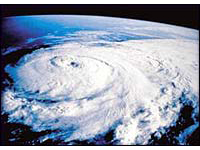Climate Change: The Issues
On 6th November, the UN Conference on Climate Change begins in Nairobi, Kenya, two days after the simultaneous global action against Climate Change. How serious is this question, and how seriously should it be taken?

The question of climate change and its consequences is no mere supposition or flight of fantasy by wannabe scientists – it is a documented phenomenon, a hard scientific fact, supported by years of research by the scientific community’s most reputable bodies and it has far-reaching and very serious consequences for the future of humanity.
While it is easy for some to play down the hype, deriding the facts because implementation of measures would cost a lot, the fact remains that the situation could not be more serious and if we do not act now, our generation will be held to ransom by history as the one which could have taken steps to save the planet but selfishly decided to do nothing and pass the buck to our grandchildren, when it may already be too late.
Studies made taking the Industrial Revolution as a starting point, indicate that rising temperatures are a direct result of human activity, with GEG (Greenhouse Effect Gases) taking an increasing toll on an ever more vulnerable environment. GEG make the planet warmer and the knock-on effects are far-reaching.
While everyone speculates about coastal flooding from the rising sea waters due to melting ice caps (a possibility, but probably far down the line), other more direct effects with more dire results could be developing before our eyes.
The first direct consequence of even a small rise in temperature is in the area of public health – increased cases of food poisoning, bacteriological infections, UV-light related deaths, skin cancers, cataracts, heart and respiratory failure; increase in diseases formerly contained in restricted areas, such as malaria, cholera, dengue, Lyme Disease, yellow fever and other diseases which have so far been contained in a certain geographical area.
Higher temperatures mean more flood and drought cycles and more devastating storms. Higher temperatures cause damage to crops and this, together with flooding, has greater effects on communities who can least afford the consequences, namely the poorer countries.
As habitats change, wild animals are affected, along with plant life. The first victims will be vulnerable species few have heard of, yet the list will grow and grow, and at the top of the list is the ultimate victim, Mankind. The Golden Toad of Costa Rica has already been exterminated and better known species in extreme danger are the polar bear, seals, walruses, penguins and plankton. And after the plankton come the whales.
Not only do our GEG emissions damage the environment, we are also performing actions which compound the problems. Deforestation is one example. Forests which used to soak up rainwaters are no longer there, the result being that floodwaters pour down hillsides, washing away topsoil, silting up rivers miles downstream and causing floods on fluvial plains. These are among the main points to be discussed in Nairobi.
The point facing us all today is that we are all brothers living around a common lake – the sea. The sooner we all realise this and implement policies which create meaningful conditions for a lasting environment for all, the better. The scientific community believes that there is still time, but action must be taken now.
Timothy BANCROFT-HINCHEY
PRAVDA.Ru
Subscribe to Pravda.Ru Telegram channel, Facebook, RSS!




